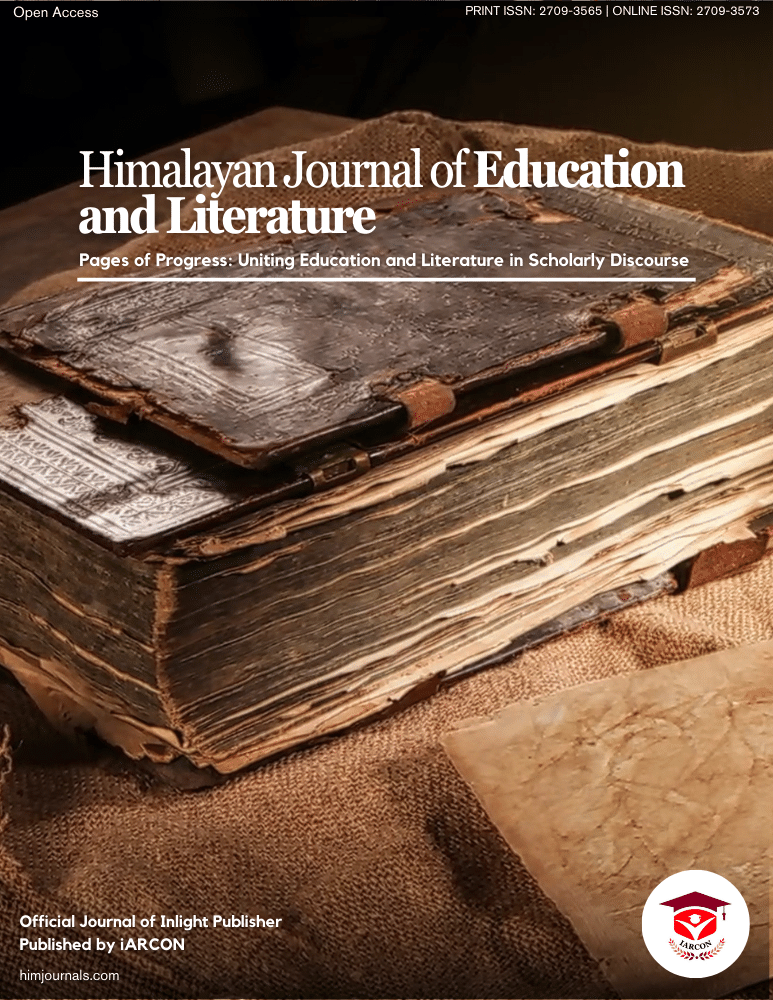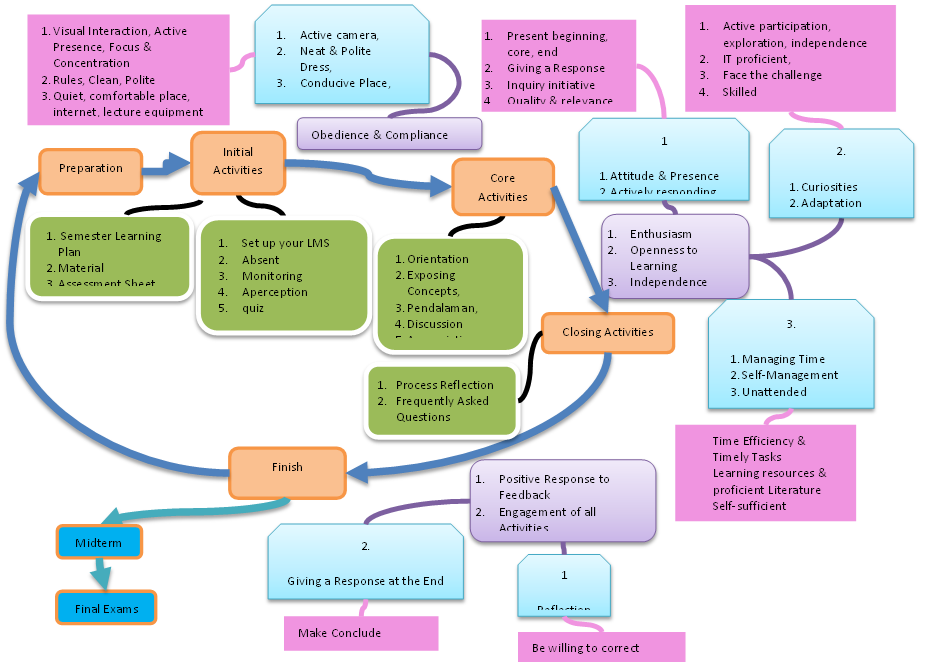Higher Education has undergone a significant transformation in line with the development of information technology and the demands of the 4.0 technology era towards society 5.0. This created the concept of distance learning in response to this change [1]. E-learning is not only a complement but also a replacement for traditional lecture activities.
In the 5.0 era that applies the principles of the Internet of Things, Artificial Intelligence, machine learning, and big data, the ability of High Order Thinking Skills is very important, especially in the context of mathematics lectures [2].
Flipped learning, as one of the e-learning lectures models, changes the traditional lecture paradigm by utilizing online and offline platforms. Lecturers use videos to convey material asynchronously, which is then discussed synchronously in real or virtual space [3][4].
The birth of online lectures has raised new challenges related to assessment in the lecture process in schools and universities. Online lecture models such as flipped learning and blended learning, which are integrated into the mathematics lecture approach, highlight the need to develop appropriate online lecture process assessments. How to measure and assess the process of online learning activities is an important question, especially in the midst of the emergence of lecture models that combine online lectures with face-to-face (face-to-face).
Assessment is the process of collecting, synthesizing, and interpreting information to make decisions [5]. Assessment is not only assessing students but is very functional to assess the lecture system itself [6], [7]. Lecturers must answer the questions, "How should I teach?" and "what grade should I give to students?". From the two questions, lecturers must have an assessment concept in the online lecture process that is carried out [8]. To measure students' abilities, teachers can see; (1) placing instructional appropriately to correct student shortcomings; (2) skills or knowledge that students have mastered should be avoided instructionally.
An in-depth understanding of the assessment of the lecture process is the key to success in providing effective teaching [9]. Good lecturers are needed to facilitate online lectures. However, this process can be complex due to a number of obstacles faced, such as the unpreparedness of some students in attending online lectures due to technical obstacles or lack of focus during the learning process [10]. This provides an in-depth context on the importance of developing an online lecture process assessment.
Massive changes in the world of education will occur so rapidly and will have an impact on the urgency of the assessments needed in the world of education. What will the world do in 2100 or even 2200 to educational policies and practices in 2010? This is a difficult job with various challenges of the current era. The challenge for assessment in the 21st century is an emerging educational priority.
Assessment procedures are necessary to support the preparation of the next generation with the skills and values they need to manage emerging global challenges [11]. Lecturers who are able to conduct tests well will be more effective lecturers [8]. Assessment and lectures are inseparable. Assessment in Indonesian Language means assessment. Assessment or assessment is a process to make decisions using information obtained through the measurement of learning outcomes, either by using test instruments or non-tests [12].
Learning must be meaningful and students become more progressive so that they not only develop their cognitive shutter but can improve the affective and psychomotor shutter of students through the process of assimilation and accommodation developed by Piaget and Vigotsky so that the assessment process is not only at the end of the lecture but also needed in the lecture process [13]. A good assessment is the right assessment to measure indicators of achievement and in what way lectures are conducted. For example, problem-based lectures require appropriate assessment methods. For example, how to solve problems is a learning process that is very important to monitor.
For this reason, assessment techniques are needed in the form of observations, performance checks, and the like. If an objective test is chosen as the assessment method, for example, a multiple-choice technique, then the quality of the problem-solving process is difficult to monitor objectively. Therefore, assessment must be understood as an effort to make the teaching and learning process effective in order to achieve the goals of the lecture itself [13].
Assessment is an activity that is carried out on an ongoing basis to collect information on student performance. Assessment of children's development and learning has an important value. Not only measuring children's progress as a form of program evaluation, the assessment is also useful for identifying staff development needs and planning for lectures ahead.
Current perspectives in classroom assessment encourage the use of a variety of assessment strategies, tools, and formats, providing ample opportunities for students to demonstrate their lectures, utilize formative feedback in a timely and regular manner, and involve students in the assessment process [14].
The challenges and effectiveness of student assessment practices in online lectures, it was found that online lecture assessment involves various types of methods, such as written assignments, online discussions, fieldwork, quizzes and exams, and presentations. The challenges identified in the study create an urgent need to improve the concept and rubric of assessment in the context of the online lecture process [15].
The birth of online lectures also raises assessment problems in the lecture process, both at school and in college. The question of how to assess and measure the process of online learning activities is a question mark that requires a solution. Thus, the development and implementation of online lecture process assessment is not only a practical necessity but also the key to improving the quality and relevance of mathematics education in this modern era. This conclusion provides a solid basis for further research and development in this field.


